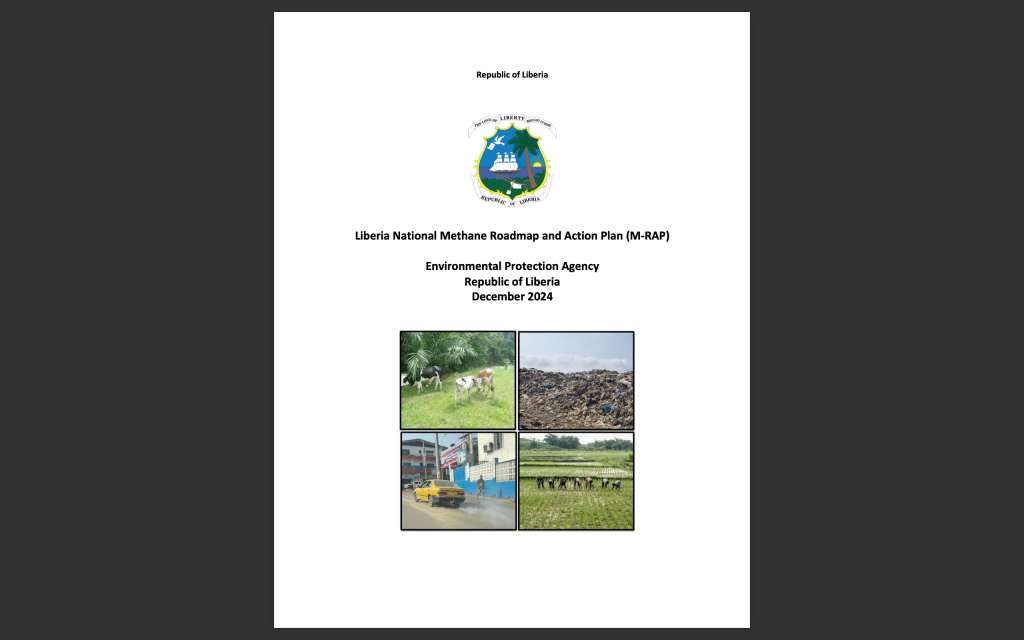Executive Summary
Liberia’s National Methane Roadmap and Action Plan (M-RAP) represents a significant commitment to address methane emissions as part of the country’s broader climate action strategy under the CCAC-UNEP. While Liberia’s methane emissions are relatively low compared to other countries, contributing approximately 0.4 MtCO2e according to recent assessments, the country recognizes the critical importance of taking proactive measures to control emissions from growing sectors such as agriculture, waste, energy, and transportation.
The M-RAP was developed through robust stakeholder engagement processes, employing a whole-of-government approach. Key stakeholders included relevant sectoral line ministries and agencies, private sector entities, civil society organizations, and national experts. This inclusive process ensures broad ownership and effective implementation of the roadmap.
The roadmap outlines specific interventions across key sectors. In agriculture, focus areas include improving rice cultivation methods, reducing field residue burning, and implementing improved livestock management practices. For waste management, emphasis is placed on developing comprehensive strategies including the promotion of waste separation at the household level, and building environmentally sustainable landfills and methane recovery systems. The energy sector commits to universal access to affordable, sustainable, and environmentally friendly low carbon energy services, while the transportation sector focuses on increasing the availability and use of Electric Vehicles (EVs) and enforcing laws that discourage the importation and use of motor vehicles older than ten years.
Implementation of the M-RAP requires multi-stakeholder involvement and capacity building across all sectors. Key elements include development of robust emissions accounting and reporting systems, enhancement of institutional frameworks for methane management, strengthening of technical capacity for emissions monitoring and reduction, and integration with existing climate change policies and strategies. The roadmap also emphasizes the importance of improving data collection and reporting mechanisms to ensure transparent compliance with international commitments.
The availability of data from the methane emitting sectors was a challenge. Hence, data generation and sharing will play a major role in the successful implementation of the M-RAP, which includes a robust M&E plan that requires a midterm review after 3 years based on the availability of data.
The successful implementation of this roadmap will position Liberia as a leader in climate action among developing nations, while supporting sustainable development and improving the quality of life for its citizens. This commitment demonstrates Liberia’s dedication to global climate action, despite its status as a low-emissions country.
Category
Ministry/Agency/Institution
<< Back To All Documents >>

